Do You Need a Permit to Replace a Water Heater?
Home » Plumbing » Water Heaters »
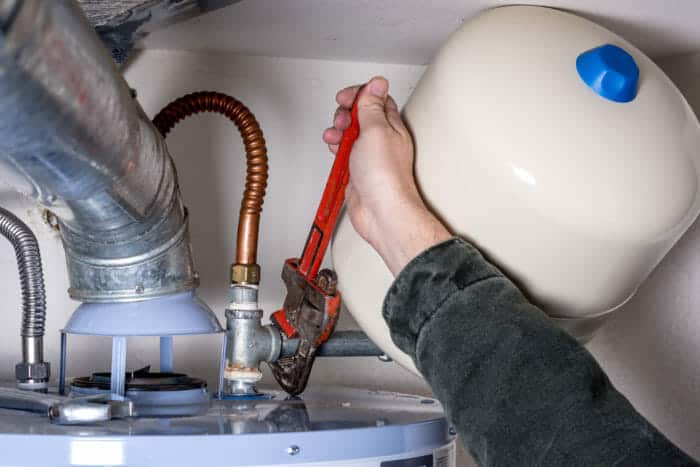
When considering replacing the water heater in your home, one of the key questions is whether you need a permit for this task. The answer depends on various factors, including local regulations, the type of water heater, and the complexity of the installation.
Understanding the Need for Permits
Permits are a part of building regulations put in place by local authorities to ensure safety and compliance with building codes. These regulations are designed to ensure that all installations are done correctly and safely, reducing the risk of accidents or inefficiencies. Codes and requirements change frequently and the installation of a new water heater should meet the current codes for safety reasons. Building jurisdictions in nearly all cities and counties require a permit for replacing a water heater.
As an example of what can happen when a water heater is improperly installed is that the T&P (temperature and pressure relief) valves can cause the water heater to explode. Unfortunately, people have died from this, which is one reason it is in the code and why it is important to have all components of the water heater properly installed. There is also fire and electrical risk associated with installing or replacing a water heater.
For gas water heaters it is especially important that the gas line be installed correctly and that it doesn’t leak as this can be life threatening. For electric water heaters, to avoid fire risk, the wiring needs to be connected properly and if the size of the water heater has been increased, then a larger wire size and breaker may be required.
When is a Permit Required?
Local Regulations: The requirement for a permit largely depends on the local building codes and regulations. In many areas, any major plumbing work, including the installation of a water heater, requires a permit. It’s important to check with your local building department or government website to understand the specific requirements in your area.
Type of Water Heater: The type of water heater being installed can also impact the need for a permit. For example, installing tankless water heaters often requires electrical and plumbing changes, which might necessitate a permit. Conversely, replacing an existing water heater with a similar model might not require one.
Gas vs. Electric Water Heaters: If you’re switching from an electric to a gas water heater (or vice versa), this usually requires a permit since it involves significant changes in the home’s electrical or gas systems.
Complex Installations: Installations that involve changes to the existing plumbing or electrical systems, venting changes, or modifications to the house’s structure will likely require a permit.
Why are Permits Important?
Safety: Permits ensure that the installation is done safely and in compliance with building codes, which can prevent hazards like the above examples, gas leaks or electrical issues.
Insurance: Some home insurance policies require compliance with local building codes. Unpermitted work might lead to insurance claims being denied in case of an accident related to the unpermitted installation.
Resale Value: When selling your home, unpermitted work can reduce the resale value or complicate the sale process. Home buyers often look to make sure the proper permits were pulled before buying a home.
Multiple Permits
Two or more permits may be required for the water heater installation. The most common scenarios requiring an additional permit:
- Electrical permit: When electrical modifications or changes are needed, an electrical permit is typically required. For example when the breaker and wire size is too small to carry the electrical load of the new water heater.
- Plumbing permit: It is common to need to add, extend or modify existing water lines to install the new water heater, and these changes typically require a permit. In some circumstances a gas line may need to be added or relocated. This also requires a permit, however often just one permit can cover both the water heater and plumbing modifications.
- If converting from an existing tank water heater to a tankless water heater, you are most likely going to need the additional permits as electrical and plumbing changes are often needed as well as likely gas line adjustments and venting requirements are often different.
To determine if you need a permit in your specific case, it’s best to contact your local building department. They can provide detailed information about the requirements in your area. Additionally, if you are hiring a professional to do the installation, they should assist with understanding and acquiring the necessary permits.
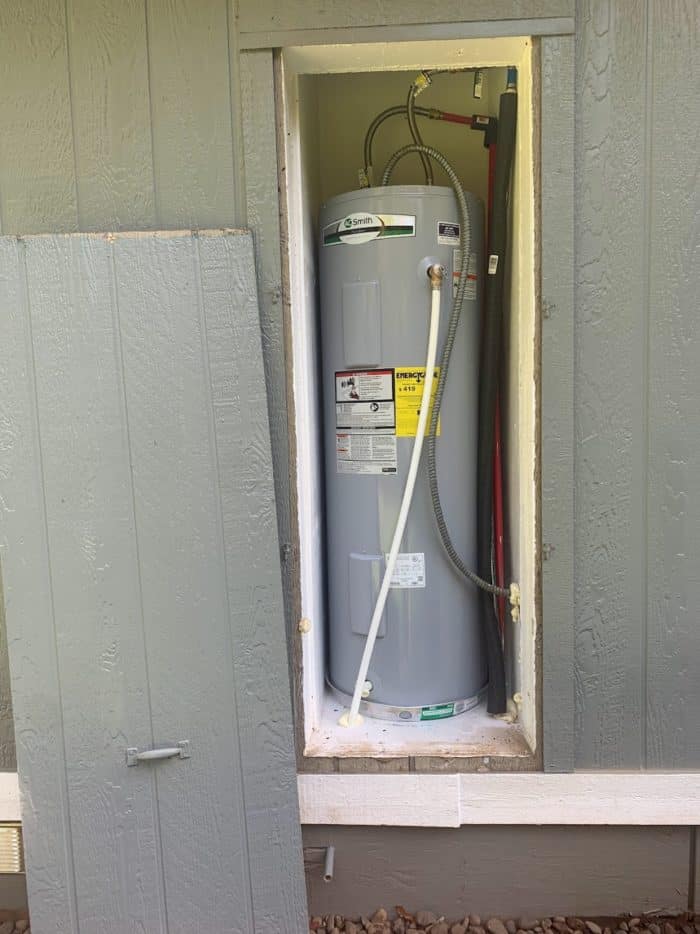
How to Obtain a Permit
If a permit is required, you can usually obtain one pretty quickly and painlessly from your local building department. Many building departments even have a handout on installing a replacement water heater and are happy to answer any questions that you may have.
The process typically involves:
- Submitting an application.
- Providing details about the installation.
- Paying a fee.
- Having the installation inspected post-installation for compliance.
- Note that some localities have a requirement for an inspection upon completion to ensure the installation complies with local building codes.
Can you replace the water heater yourself?
Yes! You can usually replace the heater yourself. Many building jurisdictions will allow you to do the installation modifications yourself to your own home, but some jurisdictions may require a licensed electrician to do the work. In some cases, a licensed professional is required by insurance or for the water heater warranty.
The decision to replace the water heater yourself should be based on several considerations. Replacing a water heater involves dealing with plumbing, electrical or gas systems, and potentially venting systems, which can be complex and hazardous if not handled correctly. Some key points to consider:
- Understanding of Systems: You should have a good understanding of your home’s plumbing and, depending on the type of water heater, the electrical and gas systems.
- Installation Requirements: Familiarize yourself with the specific installation requirements of the water heater you are installing, including any special considerations for gas, electric, or tankless models.
- Gas and Electrical Safety: As previously discussed, if you’re dealing with a gas water heater, you need to know how to safely disconnect and reconnect the gas line. For electric water heaters, knowledge of electrical safety is crucial.
- Gas Water Heater Venting: Proper venting is essential, especially for gas water heaters, to prevent carbon monoxide buildup in the home.
- Appropriate Tools: Ensure you have the necessary tools and equipment for the job, which can include wrenches, screwdrivers, pipe fittings, and possibly soldering or welding equipment.
- Seismic strapping in earthquake zones: If you live in an area that is prone to earthquakes, is your water heater strapped properly?
- Safety Gear: Use appropriate safety gear, such as gloves and eye protection.
- Physical Demands: Replacing a water heater can be physically demanding, involving heavy lifting and working in tight spaces.
- Disposal of Old Water Heater: Plan for how you will properly dispose of the old water heater, which also might involve local regulations. Often big box home improvement stores will take your old water if you purchase your new water heater through them.
- Is the gas line made of rigid aluminum tubing? Rigid aluminum tubing is no longer allowed in most building jurisdictions for safety reasons and should be replaced when installing a new water heater.
The biggest issues would arise from a homeowners insurance claim due to damage from the water heater to your home in the future. If your homeowners insurance finds that you did not obtain a permit, then they may not cover the damages. Also it could come up while selling your home, or if you are reported by a neighbor. Most likely a fine would be levied or you would be asked to have a licensed plumber pull a permit and either redo or certify the installation.
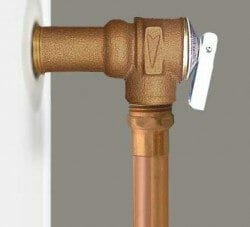

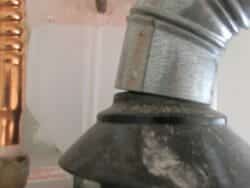
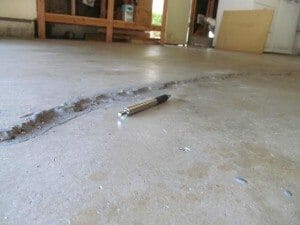

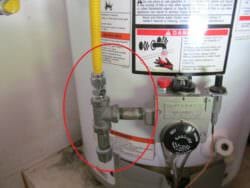
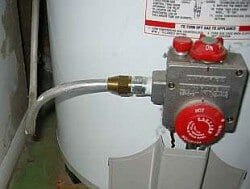
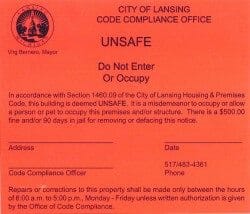


Although state, municipal, and city water heater installation rules and regulations differ, they are nonetheless in place to safeguard you and other households. Additionally, separate permits are required if you replace or alter the plumbing or electrical components of the water heater.
Thanks Cyrus, yes usually permits come in to play for work that is required to be done for outfitting the new water heater such as plumbing, electric, or gas.